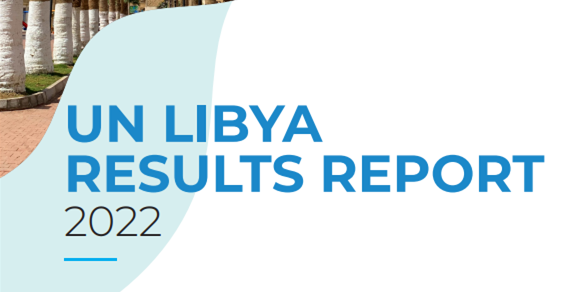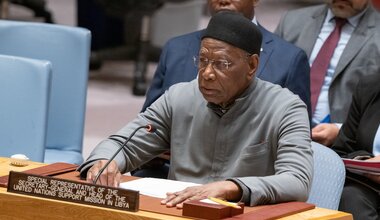Launch of Humanitarian Response Plan for Libya 2015/16 to Assist 2.4 Million People in Need
20 November 2015 - The Humanitarian Response Plan for Libya 2015-16 to address the needs of 2.4 million people who require some form of humanitarian assistance was launched in Geneva on Friday 20 November 2015.
Opening the meeting, Rashid M. Khalikov, Director of the UN Office for the Coordination of Humanitarian Affairs in Geneva, described a situation in Libya characterized by violence, conflict and instability across the country. A significant number of Libyans have “been displaced multiple times”, increasing their vulnerability, he said.
Ali Al-Za’tari, the Deputy Special Representative of the Secretary-General and UN Resident and Humanitarian Coordinator for Libya, emphasized the need for an immediate cessation of conflict and for a political agreement to facilitate the humanitarian response.
Mr. Al-Za’tari and members of the Humanitarian Country Team outlined details of the Humanitarian Response Plan: 2.44 million people in need of protection and some form of humanitarian assistance including 435,000 Internally Displaced Persons, 60 percent of hospitals in conflict areas are inaccessible, access to food for 1.2 million people is affected and public schools are closed. The plan requires $165.6 million in funding.
Speaking via video-link from Tunis, Mr. Al-Za’tari appealed for financial support for the plan. He stressed that the urgency of the humanitarian situation required a strong response, highlighting the challenges faced in the health response, food security, and education, and in particular the hardships endured by women and girls.
“Women and girls are critically subject to insecurities associated with Internally Displaced People status complications, or migrant status, whether in temporary shelters or in detention centres,” Mr. Al-Za’atari said.
Salwa Eldaghili, Chargé d’Affaires of the Libya Permanent Mission in Geneva, expressed Libya’s support for the plan and appealed to the international community to provide support in some of the areas of greatest need. Ms. Eldaghili also raised the negative impact of insecurity on children, and the weakening healthcare system, and thanked members of the humanitarian community present for their work.
In other interventions, members of the international community called for a pledging conference for the plan, an idea supported by all members of the panel.
 United Nations Peacekeeping
United Nations Peacekeeping UN
UN







